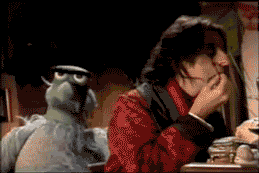
Quote:
With Paranoid, Black Sabbath perfected the formula for their lumbering heavy metal. On its follow-up, Master of Reality, the group merely repeated the formula, setting the stage for a career of recycling the same sounds and riffs. But on Master of Reality Sabbath still were fresh and had a seemingly endless supply of crushingly heavy riffs to bludgeon their audiences into sweet, willing oblivion. If the album is a showcase for anyone, it is Tony Iommi, who keeps the album afloat with a series of slow, loud riffs, the best of which -- "Sweet Leaf" and "Children of the Grave" among them -- rank among his finest playing. Taken in tandem with the more consistent Paranoid, Master of Reality forms the core of Sabbath's canon. There are a few stray necessary tracks scattered throughout the group's other early-'70s albums, but Master of Reality is the last time they delivered a consistent album and its influence can be heard throughout the generations of heavy metal bands that followed.
Quote:
Master of Reality is the third album by heavy metal band Black Sabbath, released in 1971 (see 1971 in music). On this album, guitarist Tony Iommi began de-tuning his guitar down three semi-tones (or one and a half steps, or C♯) to reduce tension in the strings, making it easier to play with his injured fingers. This led to a lower, sludgier sound that became the Master of Reality trademark. The lyrical themes include: drugs, solitude, war and theology. "After Forever" is credited lyrically to Iommi (the only Sabbath lyrics solely credited to him thus far) and is heavily Christian-themed. On original US pressings of the album, several songs had subtitles given to segments, making it appear that there were more songs on the album than there actually were: the coda of "Children of the Grave" was given the title "The Haunting," the intro to "Lord of This World" was titled "Step Up," and the intro to "Into the Void" called "Deathmask." (Subtitles were also provided to several songs on the US releases of the first two Black Sabbath albums.) Also, the album's title was incorrectly listed as "Masters of Reality" on the labels of original Warner Bros. (green-label) US pressings. Subsequent pressings corrected the album's title on the label, and removed the three subtitles. This album is cited as an influence by many Stoner Metal and Sludge Metal artists. In the UK the album reached #5. Initial pressings came in an embossed 'envelope sleeve', which contained a poster of the band and the generic Vertigo inner bag, although for this album the 'swirl' was white-on-black, rather than black-on-white. This was the first Black Sabbath sleeve on which the lyrics were reproduced, being on the rear of the sleeve. On the Billboard Pop Albums chart, Master of Reality peaked at #8. In 2003, the album was ranked number 298 on Rolling Stone magazine's list of the 500 greatest albums of all time.. It was the third and final Black Sabbath album to be produced by Rodger Bain. Many of the songs would be played on the The Reunion Tour (more than on the tour contemporary to the
I always thought Lester Bangs (based on the quote I used for the thread) didn't like Sabbath but here's his review from 1971:
Quote:
The second-generation rock audience (that is, those who went steady to "I Wanna Hold Your Hand" and got serious with Highway 62 Revisited) suffer mightily wrestling with the phenomenon represented by Grank Funk and Black Sabbath. If nothing else, though, both Funk and Sabbath are for all their monotony at least supremely consistent — as opposed to schtick collectors with no personal vision like Deep Purple. And since when is monotony so taboo in rock & roll, anyway? Rock has been — some of the best of it too in large part monotonous from the beginning, hypnotically so, as rightwingers would say. As far apart as they are, Black Sabbath is only slightly more monotonous than James Taylor or Joni Mitchell, and any Stooges or MC5 fan who disdains Black Sabbath is just bigoted.
The thing is that, like all the best rock & rollers since the Pleistocene era, Black Sabbath (and Grand Funk) have a vision that informs their music with unity and direction and makes their simple structures more than they might seem. Grand Funk's vision is one of universal brotherhood (as when they have spoken of taking their millions to the White House with a list of demands), but Black Sabbath's, until Master of Reality anyway, has concentrated relentlessly on the self-immolating underside of all the beatific Let's Get Together platitudes of the counter culture.
Their first album found them still locked lyrically into the initial Spiritualist-Satanic hype and was filled out mostly with jamming, while Paranoid reflected that theme only, in the great line in "War Pigs": "Generals gathered in their masses Just like witches at black masses." The rest of the album dealt mostly with social anomie in general, from the title track's picture of total disjuncture (rendered with authentic power too) to "Iron Man's" picture of an unloved Golem in a hostile world, the stark picture of ultimate needle-freak breakdown painted in the philippic "Hand of Doom," and finally the unique "Fairies Wear Boots": "I went walkin' late last night Suddenly I got a fright/I looked in the window, was surprised what I saw/Fairies in boots dancin' with the broads!"
Not all of this, incidentally, was rendered in La Brea sinks of lugubrious bass blasts — several of the songs had high wailing solos and interesting changes of tempo, and "Paranoid" really moved. If you took the trouble to listen to the album all the way through.
Master of Reality both extends and modifies the trends on Paranoid. It has fewer songs, if you discount the two short instrumental interludes, but it is not that the songs are longer than the first record — the album is shorter. The sound, with a couple of exceptions, has evolved little if at all. The thick, plodding, almost arrhythmic steel wool curtains of sound the group is celebrated and reviled for only appear in their classical state of excruciating slowness on two tracks, "Sweet Leaf" and "Lord of This World," and both break into driving jams that are well worth the wait. Which itself is no problem once you stop thinking about how bored you are and just let it filter down your innards like a good bottle of Romilar. Rock & roll has always been noise, and Black Sabbath have boiled that noise to its resinous essence. Did you expect bones to be anything else but rigid?
The rest of the songs, while not exactly lilting, have all the drive and frenzy you could wish for in this day and age. Thematically the group has mellowed a bit, and although the morbidity still shines rankly in almost every song, the group seems to have taken its popularity and position seriously enough to begin offering some answers to the dark cul-de-sacs of Paranoid. "Sweet Leaf," for instance, shows that Black Sabbath have the balls to write a song celebrating grass this late date, and the double entendre, if you can even call it that, is much less tortuous than it would have been in 1966, with an added touch of salvation from grosser potions: "My life was empty forever on a down/Until you took me, showed me around ... Straight people don't know what you're about..."
Unfortunately, the religious virus also rears its zealot head, in "After Forever," which is a great Yardbirds-type arrangement nevertheless and despite its drubbing us over the head with "God is the only way to love" it does have the great line "Would you like to see the Pope on the end of a rope?"
And besides, isn't all this Christian folderol just the flip side of the Luciferian creed they commenced with and look back on balefully in "Lord of This World"? And for those of us, like me, who prefer the secular side of Black Sabbath, there's "Solitude," a ballad as lovely as any out of England in the last year (with flute yet), and "Children of the Grave": with "Revolution in their minds the children start to march Against the world they have to live in Oh! The hate that's in their hearts They're tired of being pushed around and told just what to do. They'll fight the world until they've won and love comes flowing through."
I'm not saying that either that or the arrangement it's set in is the new "My Generation," but it is a rocking, churning addition to the long line of defiant, self-affirmative and certainly a little defensive songs that goes right back to the earliest whap and wail of rock 'n' roll. It's naive, simplistic, repetitive, absolute doggerel — but in the tradition. Chuck Berry sang in more repressed times. "Don't bother us, leave us 'lone/Anyway we almost grown." The Who stuttered "hope I die before I get old," but the MC5 wanted to "Kick Out the Jams" or at least escape on a "Starship," and Black Sabbath have picked up the addled, quasi-politicized desperation of growing up in these times exactly where they left off: "Freedom fighters sent out to the sun Escape from brainwashed minds and pollution/Leave the earth to all its sin and hate/Find another world where freedom waits."
The question now is not whether we can accept lines as obvious and juvenile as that from a rock & roll record. They should be as palatable to anyone with a memory as the stereotypic two-and three-chord structures of the songs. The only criterion is excitement, and Black Sabbath's got it. The real question is whether Black Sabbath can grow and evolve, as a band like the MC5 has, so that there is a bit more variation in their sound from album to album. And that's a question this group hasn't answered yet.
Code:
http://tinyurl.com/44echb5






